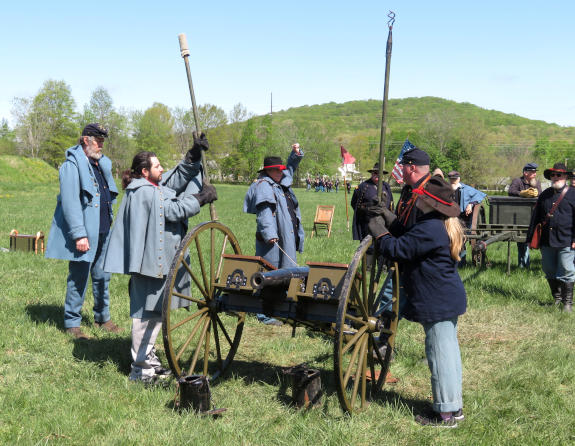NEWS OF 150 YEARS AGO
November-December 1862
From The Missouri Democrat, Tuesday, November 11, 1862.
AMERICAN GENERALSHIP.
Since the day of Bull Run, the soldiers of the Union have won nothing but encomiums by their heroism. Occasionally an officer, and now and then a regiment, has been subject to unfavorable imputation, but as a general thing, the world has never produced armies which have done so well under all circumstances, as the volunteer soldiery of the United States. Nevertheless, in a war of twenty months duration, we find that our armies, representing a population of twenty millions, have not succeeded in the overthrow of armies representing a population of less than half that number.
Why is this? The voice of the nation, wearied and indignant, long ago answered, “Inferior generalship.”
In the West, it is true, the monotony of magnificent do-nothing policy has been relieved by victories of no ordinary brilliancy, but these, beyond serving to keep up the spirit of an otherwise despondent people, have been measurably profitless. The East, the main wing of the column, has been stationary, and consequently the whole line of battle has failed of victory.
Whoever would have supposed that among a people possessed of intelligence, the versatility, the genius of the Americans, a war taxing the full resources of the nation, and calling into requisition the utmost, not simply of its physical, but its mental abilities, could be prosecuted for twenty months, without calling out one military leader who can be pronounced truly great? We have a number of very respectable Generals, men who have done their duty in a professional way, most nobly, but can we say more than that for them? We have a number who are destined to rise yet higher in public estimation, but if everything moves on in the same general channel in the future, as in the past, why have we reason to indulge the hope of a loftier development in them than in their predecessors?
Where is the difficulty? We are satisfied it is not in the men, but in the system. Who can doubt that our armies possess as much real capacity for leadership as they do courage and endurance, the generally understood chief requisites of the common soldiery? If a regimen were adopted calculated to develop, not repress the spirit of generalship among the masses, why may we not look for its speedy appearing to any extent which might be desired? Who can doubt that the West Point system has been the millstone around the neck of the army of the nation? Not that the gentlemen educated at that institution have not generally acquitted themselves creditably, nor that a military education in itself is not most desirable in a soldier, but that in consequence of that system, we find so few others who have been permitted to hold positions of responsibility in the army, or holding such positions, to act upon their own unhampered judgments. That system has created a monopoly of army government, and in arms, as everywhere else, we regard monopolies as hurtful. Like a monarchical system, it confines power to a few hands by a sort of proscriptive right, regardless of what capacity there may be outside. And to suppose that the military genius of our people is limited to a few hundred who have seen the inside walls of a military institution, would be a manifest absurdity. Their natural opportunities are undoubtedly equal, but certainly not superior to those other gentlemen.
That a system of greater liberality in the military department is likely to be pursued, hereafter, becomes probable from a number of circumstances. The removal of McClellan is undoubtedly the most significant. The appointment of Banks to a command entirely independent, is another. No man in the whole course of the war has given more positive evidences of his ability in the field than Nathaniel P. Banks, civilian though he was before the rebellion led him to take up the sword.



